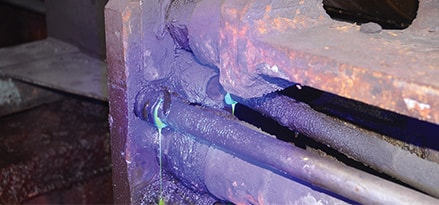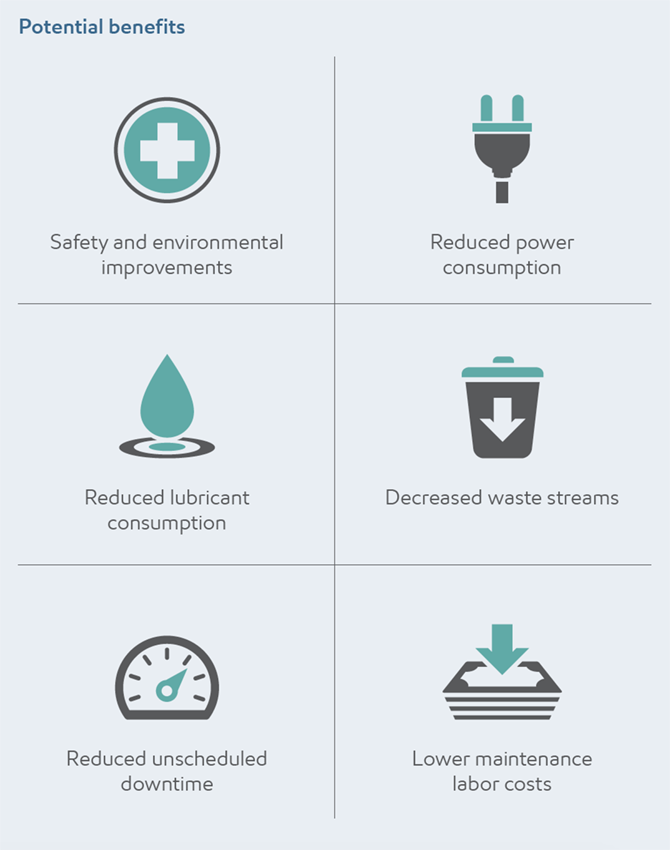Leakage control study

Engineers inspect your systems to detect lubricant and other leaks and provide recommendations for any necessary repairs and maintenance practices.
Description
Our expert engineers will use advanced leak detection technology to locate costly lubricant and other leaks in critical plant systems. They will help establish the optimum time to replace or repair leaks in critical components or equipment and recommend maintenance practices to help prevent or reduce system leakage. They will also locate and document safety, health and environmental issues associated with leaks.
Application
We work with you to:
- Develop an inspection plan based on system type, such as:
- Pressurized plant air and vacuum systems
- Non-pressurized vessels (storage facilities)
- Engine air intake, exhaust and coolant systems
- Hydraulic and circulating oil systems
- Systematically inspect components from fluid source to destination
- Record and tag all detected leaks and assess relative severity
- Compare the results with previous inspection data (if applicable)
- Prepare an Engineering Service Report
- Present and distribute the completed report to plant management and key personnel
Deliverable: An Engineering Service Report documents the findings from the leakage control study. It contains recommended steps to stop the leaks, maintenance practices to reduce or prevent their recurrence and estimated value of the service to the customer.
Common opportunity areas
- Seal incompatibility with specific blends of mineral and synthetic lubricants
- Seal swell, shrinkage or wear
- Hose rubs, oxidation or internal hose wear from high-pressure turbulent flow
- Tubing ferrule fatigue
- Loosened fittings from vibration
- Temperatures too high or too low
- Pressures too high
- Maintenance practices
Safety, health and environment
Our field engineers are attuned to the hazards of handling, storing and using petroleum products. They strictly observe safety and environmental rules, as well as ExxonMobil and customer safety practices. They coordinate efforts through designated plant personnel verifying electrical and mechanical lockout and proper tagging prior to working on equipment, and providing recommendations to help reduce hazards.

